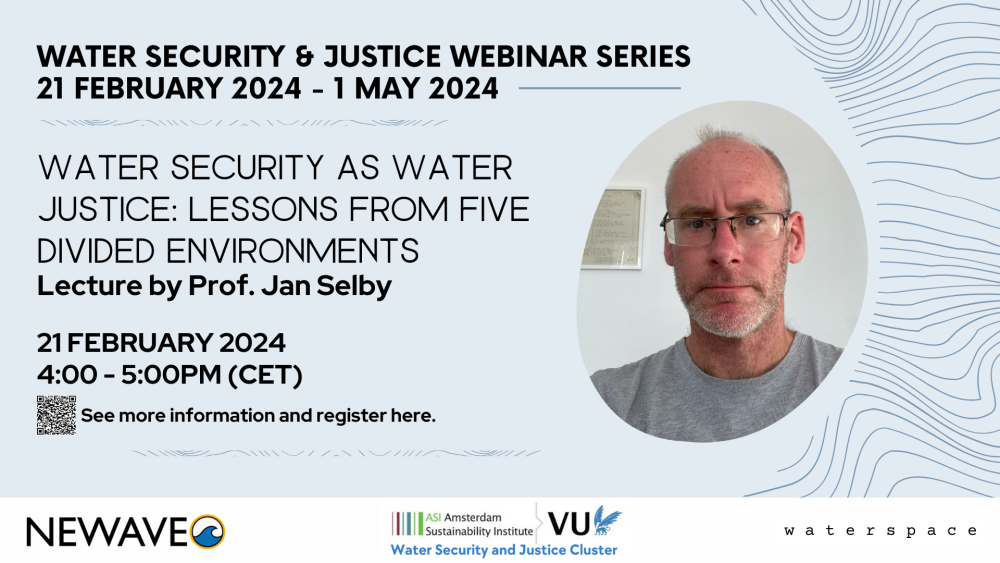Water Security & Justice Webinar Series: Water security as water justice - lessons from five divided environments
Water security as water justice: lessons from five divided environments - lecture by Prof. Jan Selby
What is 'water security'? What is 'water justice’? This lecture will argue, from a political ecology perspective, that they should be thought of as equivalent. It will develop this argument in relation to water frontiers, the impacts of war on water, and the international political ecology of virtual water. And it will illustrate through discussion of five water conflict-plagued ‘divided environments’, Cyprus, Israel-Palestine, Sudan, Syria and the Lake Chad basin. The lecture will draw upon Prof. Selby’s recent book (with Gabrielle Daoust and Clemens Hoffmann) Divided Environments: An International Political Ecology of Climate Change, Water and Security.
Recommended reading:
Selby, J., Daoust, G., & Hoffmann, C. (2022). Frontiers. In Divided Environments: An International Political Ecology of Climate Change, Water and Security (pp. 169–208). Cambridge: Cambridge University Press [link]
You can register for this session here.
0.5 ECTS credits after participation to more than 80% of the sessions and engagement with assigned readings
About the speaker
Prof. Jan Selby joined the University of Leeds in 2023 as Professor of International Politics and Climate Change, having previously worked at the universities of Lancaster (2000-02), Aberystwyth (2002-04), Sussex (2005-20) and Sheffield (2020-23).
His research focuses on the political causes of, and responses to, climate and other environmental changes, though he has also worked periodically on themes in International Relations theory; conflict, peacebuilding and development; and Middle East politics. Prof. Selby's research focuses on the links between climate and other environmental changes, and structures and dynamics of politics and power. This involves exploring both the political, including international political and political-economic, causes of environmental changes and crises, as well as the consequences of environmental changes and crises for politics, and the political responses to them. His work is informed by a combination of political ecology, and historical materialist and post-colonial International Relations.
This webinar is the opening session of the Water Security & Justice webinar series that takes place between 21 February and 1 May. Please visit this page to see more information about the series and the full program.




